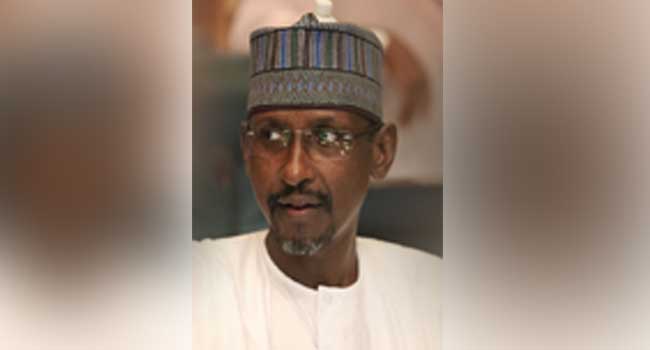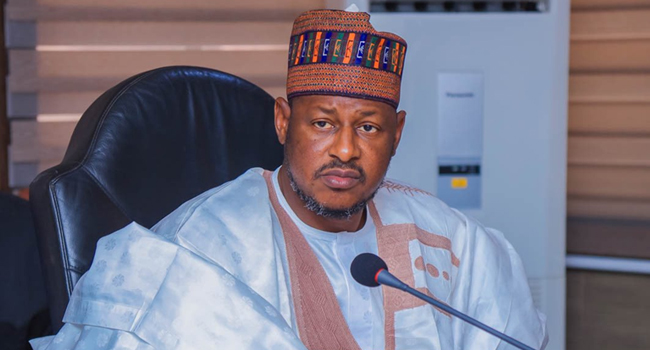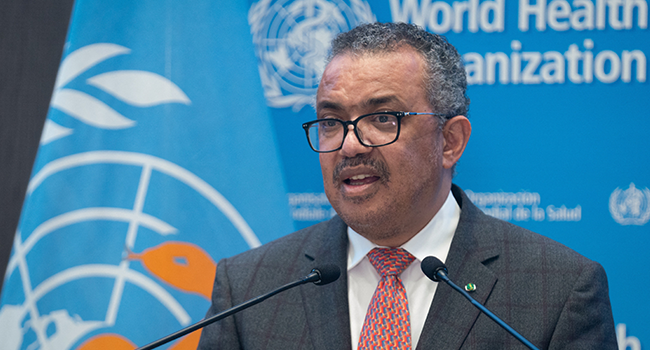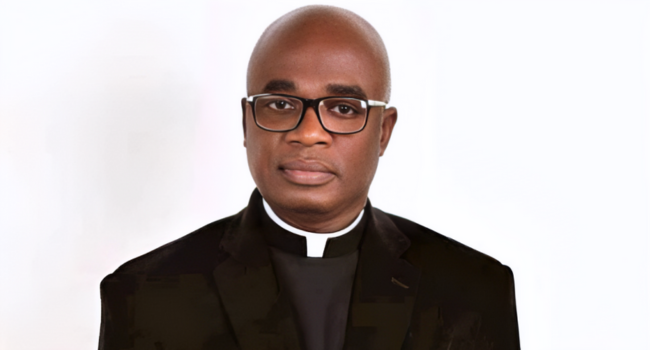
The FCT Minister, Malam Muhammad Musa Bello, on Wednesday June 3 2020, chaired a meeting of the FCT Administration and leadership of the FCT Christian Association of Nigeria and League of FCT Imams Initiative to review the guidelines issued by the Presidential Task Force on COVID-19 particularly as they concern places of worship.
While reviewing the guidelines, the meeting received briefings from the FCT COVID-19 Emergency Response Team on the situation of the pandemic in the FCT.
The report of the Committee set up by the Honourable Minister on May 19, 2020, to draw up protocols to be adopted for possible re-opening of places of worship, was equally received at the meeting.
After extensive deliberations, the meeting agreed to adopt the Guidelines as released by the Presidential Task Force on COVID-19 with regards to the re-opening of places of worship in the FCT under the second phase of the ease of lockdown for the next four weeks.
The Minister expressed the appreciation of the FCT Administration to the religious leaders for their cooperation and commitment towards a safe re-opening of places of worship in the Territory.
He also urged residents to use the opportunity provided by the re-opening of Churches and Mosques to pray fervently for the early end to the Covid -19 pandemic.
The religious leaders expressed their appreciation to the FCT Administration for always consulting and taking into consideration the opinions of the religious organisations on important societal issues like the COVID-19 pandemic.
READ ALSO: WHO Resumes Use Of Hydroxychloroquine In Fight Against COVID-19, PTF Affirms
Following this consensus, between the FCT Administration and the religious leaders, the protocols guiding the re-opening of places of worship in the Territory are as follows:
A. All places of worship must sign up to full compliance with all aspects of non- pharmaceutical interventions required to protect the public from COVID-19, including but not limited to:
i. Ensuring the supply of running water and soap/alcohol sanitisers at entry and exit points and in all high-contact locations including bathrooms;
ii. Worshippers must sanitise their hands before entry;
iii. Provision of temperature checks before entry;
iv. Mandatory use of face masks;
v. Strongly discourage all close contact including shaking hands, hugging, kissing, handing out of materials and sharing of worship implements including prayer mats, musical organs, microphones etc;
vi. Churches and mosques within the FCT must limit the capacity of their facilities to allow for physical distancing of at least 2 meters between persons.
vii. Religious leaders are encouraged to consider the use of floor/surface markings to guide distancing and also encourage people from same household to stay together;
viii. Volunteers providing support at places of worship should be limited to exact numbers needed and none should have an underlying medical condition or be above the age of 55 years; and
ix. The leadership of the mosques/churches will be responsible for full compliance with these rules.
B. Limit congregational contact times, with places of worship only opening for regular church and mosque services;
i. Churches are to open from 5am and close by 8pm and each service shall be for a maximum of 1 hour with an interval of 30 mins in between services to allow time for disinfection;
ii. Mosques are to open 15 mins before Adhan and close 10 mins after prayers for the five prayers. Waiting period between Adhan and Iqamah should not be more than 10 minutes. Prayers are to be shortened to reduce duration of contact between congregations;
iii. For Friday prayers, mosques in the FCT are to open 20 minutes before prayers and close 20 minutes after prayers. Total time for Friday prayers including sermons should not exceed 1 hour;
iv. Islamiyah schools, All-Night Vigils, Sunday Schools and children activities are to remain suspended. For mosques, only the five daily prayers and Friday prayer services are allowed;
v. Mass gatherings that make compliance with physical distancing impossible are not allowed. Prayer sessions should be staggered if necessary, to encourage greater opportunity for physical distancing. Worshippers are encouraged to sign up for preferred service time and virtual worship option should be made available;
vi. Churches and mosques should make provisions for separate entry and exit points and measures should be taken to direct the flow of people to avoid crowding and breach of physical distancing rules;
vii. There should be no social gatherings either before or after worship; and
viii. Business outlets within the church or mosque premises should remain closed.
C. Vulnerable individuals such as those aged 55 years and above, those with impaired immune systems (e.g. HIV, cancer treatment) and underlying co-morbidities such as diabetes and heart disease are hereby advised to stay at home and consider remote participation or non-contact attendance such as drive-in services.
D. Improve environmental hygiene and avoid surface contamination;
i. Churches and mosques are advised to make their premises free of carpets to allow easy and regular disinfection of floors and furniture;
ii. All windows in churches and mosques should be kept open during services and the use of non-enclosed spaces/open air services are encouraged to be used as much as possible;
iii. High-touch surfaces, high traffic areas, common areas, and bathrooms should be frequently cleaned and disinfected and
iv. Those responsible for sanitation should use dilute bleach (1000ppm) to disinfect all surfaces after removal of visible dirt. infected persons should be kept out to reduce the risk of onward transmission.
E. Public awareness campaign through effective messaging using conventional media and online outlets and placing of signages/notices at strategic locations. This should address common symptoms, risk of transmission, vulnerability to severe illness, etc;
ii. Worshippers should be encouraged not to attend in person if experiencing symptoms of COVID-19 including fever, cough, shortness of breath or have had close contact with an infected person in the last 14 days;
iii. All worshippers noted to have a temperature or are symptomatic on arrival at the place of worship should be excluded from participation;
iv. Up-to-date records of staffing including contact details and if possible, a full record of attendees at every service to enable contact tracing should be kept; and
v. Religious visits to homes by religious clerics are hereby discouraged
F. The FCT Administration has recognized the importance of places of worship in our social and cultural way of life. They have equally been proven to be major sources of easy spread of the disease. It is therefore imperative that all places of worship adhere very strictly to the guidelines enunciated above.
G. The meeting also acknowledged that the situation of COVID-19 in the FCT is still at a very critical stage and recognizes that there is the danger that if the established protocols are not adhered to, the cases of those infected and fatalities will increase. It is therefore essential that all residents of the FCT take personal responsibility in ensuring strict compliance.




